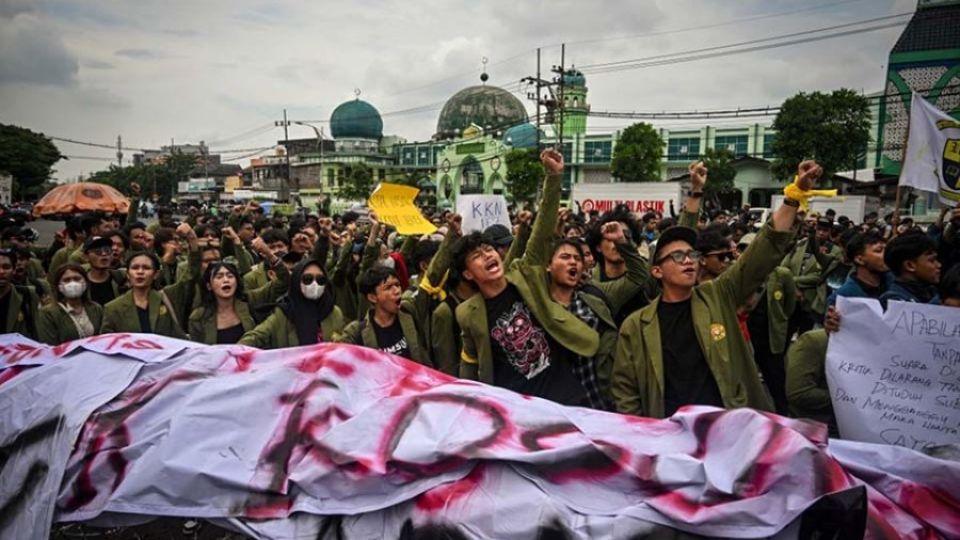February 21, 2025
JAKARTA – We are witnessing a welcome resurgence of youth activism. The so-called “golden generation” is finding its voice again— at the ballot box, in the digital sphere and, most recently, on the streets. Their message is clear: they reject the status quo.
In 2022, we wrote that the student movement was on its last legs, struggling to retain its role as an agent of change. Yet, we held onto hope that youthful idealism, tempered by unconvincing policymaking and economic uncertainty, would eventually reignite their activism. We welcome that this hope is now becoming a reality.
This week’s protests, the fastest that any president has faced since taking office since the Reform era, are a visible sign of this renewed vigor. Thousands of students across major cities have taken to the streets, rallying against the state budget cuts that have disproportionately impacted education. The austerity measures, introduced in a recent presidential decree, have sparked concerns about misplaced priorities, slashed salaries and an uncertain future for contract workers. The government’s 2045 Vision speaks of a “golden generation,” yet its policies tell a different story.
Beyond the streets, youth discontent is also growing online. The viral hashtag #KaburAjaDulu (“Let’s just run away first”) has become a rallying cry for young Indonesians who see brighter futures abroad. Much like Africa’s “japa” movement, this trend reflects frustration with economic stagnation, bureaucratic inefficiency and a lack of opportunities at home. If the country’s most promising minds decide their fortunes lie elsewhere, Indonesia faces a potential brain drain that could cripple its ambitions.
This growing disillusionment should serve as a wake-up call for President Prabowo Subianto’s administration. Instead, his government appears caught off guard. Barely four months into office, Prabowo was forced into his first cabinet reshuffle – a clear sign of policy missteps and mounting public dissatisfaction. His administration must not be lulled into complacency by an inflated approval rating. Yet the reality on the ground is far less reassuring.
A key point of frustration is the government’s failure to secure foreign investment. The hesitancy of global tech giants like Apple to invest in Indonesia is a national embarrassment. Without competent human resources and a robust ecosystem, the country will struggle to compete on the world stage. The education sector, already under pressure, cannot afford reckless budget cuts that further erode its capacity to produce skilled graduates.
Prabowo and his big bureaucracy must tread carefully in the months ahead. Student protests, once dismissed as occasional outbursts, could escalate into sustained resistance if policies remain misaligned with peoples’ realities and aspirations. If this discontent spreads to the constituencies of his coalition allies, it could weaken his political standing long before the 2029 election cycle.
Encouragingly, the cabinet reshuffle signals an acknowledgment of policy miscalculations. The appointment of a new minister to address the fallout from gaffes and budget cuts suggests that the government is at least listening. However, course correction must go beyond damage control – it must involve a long-term commitment to youth empowerment and educational reform.
For student activists, the challenge now is to maintain their integrity and focus. The recent revision of the Mining Law, while watered down in wording, still leaves room for universities to engage in commercial ventures. This poses a direct threat to academic independence. Students must ensure that their institutions do not fall into the trap of financial self-interest at the expense of their advocacy.
The resurgence of youth activism is a promising sign that Indonesia’s democracy is still alive. But activism alone is not enough. The government must listen, act and commit to policies that secure the future of its youth. The alternative – continued neglect – will drive young Indonesians further away, both from the ballot box and from the country itself, if not onto the streets.


